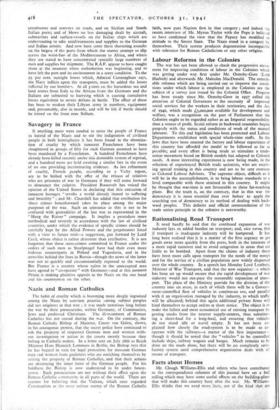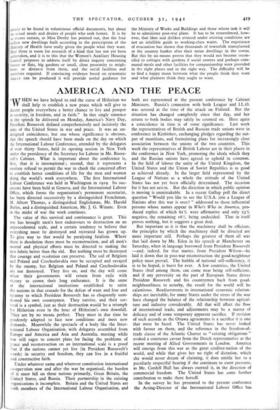Facts about Homes .
Mr. Clough Williams-Ellis and others who have contributed to the correspondence columns of this journal have set a ball rolling which may have some useful effects on the building-plans that will make this country busy after the war. Mr. Williams- Ellis thinks that we need more facts,- not of the kind that are already to be found in voluminous official documents, but about the actual needs and desires of people who seek homes. It is by no means certain, as Miss Denby has pointed out, that the four pillion new dwellings built according to the prescription of the Ministry of Health have really given the people what they want. Here there is room for research of a kind that has not yet been undertaken, and it is to this that the Women's Auxiliary Housing Council proposes to address itself by direct inquiry concerning houses or flats, big gardens or small, close proximity to neigh- bours or distance from them, and the social facilities and amenities required. If convincing evidence based on systematic inquiry can be produced it will provide useful guidance for
the Ministry of Works and Buildings and those whose task it will be to administer post-war plans. It has to be remembered, how- ever, that likes and dislikes evinced under existing conditions are not an infallible guide to working-class wants. The experience of evacuation has shown that thousands of townsfolk transplanted to the country hanker after their mean dwellings in the towns. But this by no means proves that they would not become recon- ciled to cottages with gardens if social centres and perhaps com- munal meals and other facilities for companionship were provided in the right places and in the right way. The difficulty will be to find a happy mean between what the people think they want and what planners think they ought to want.























 Previous page
Previous page